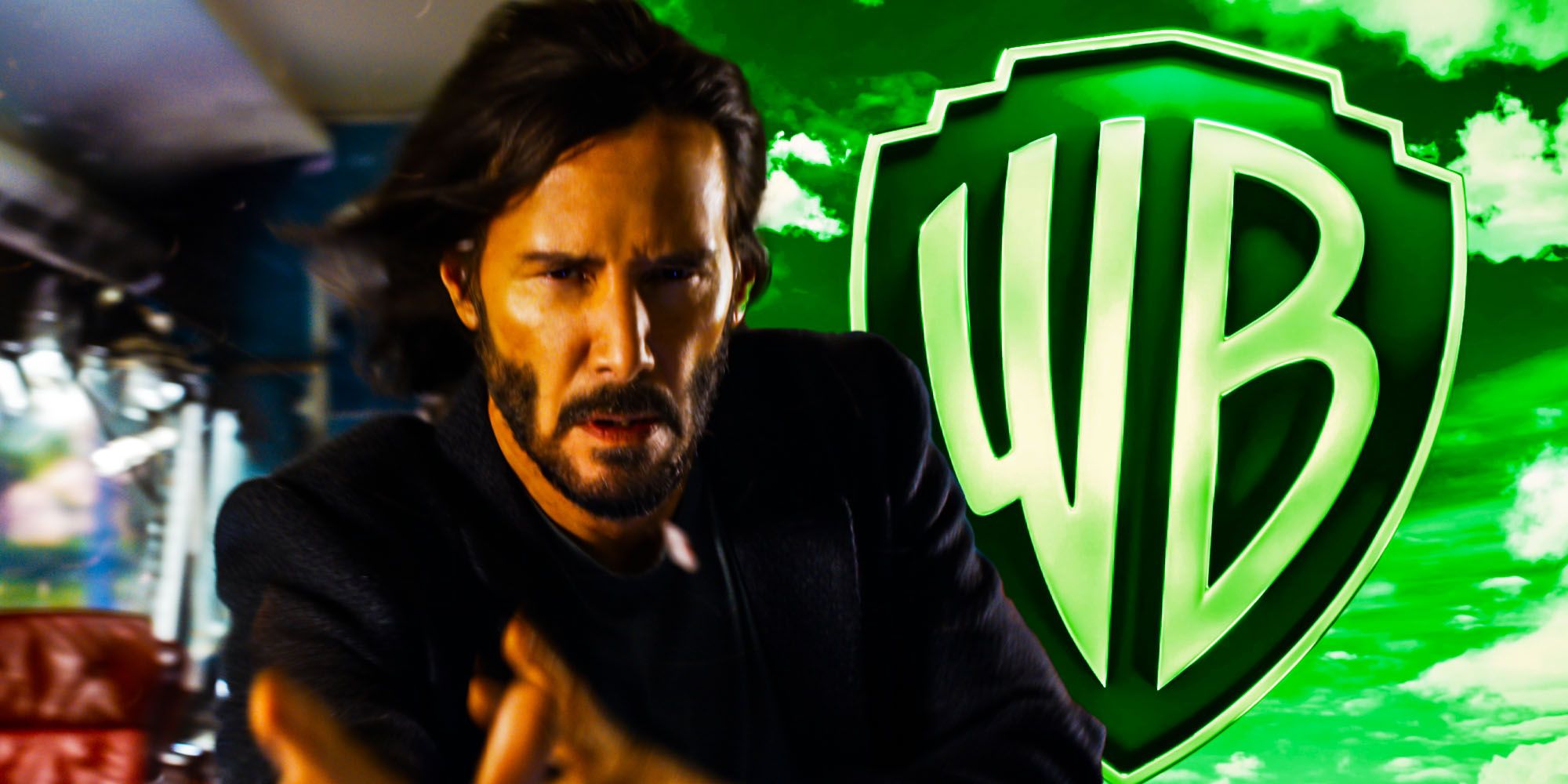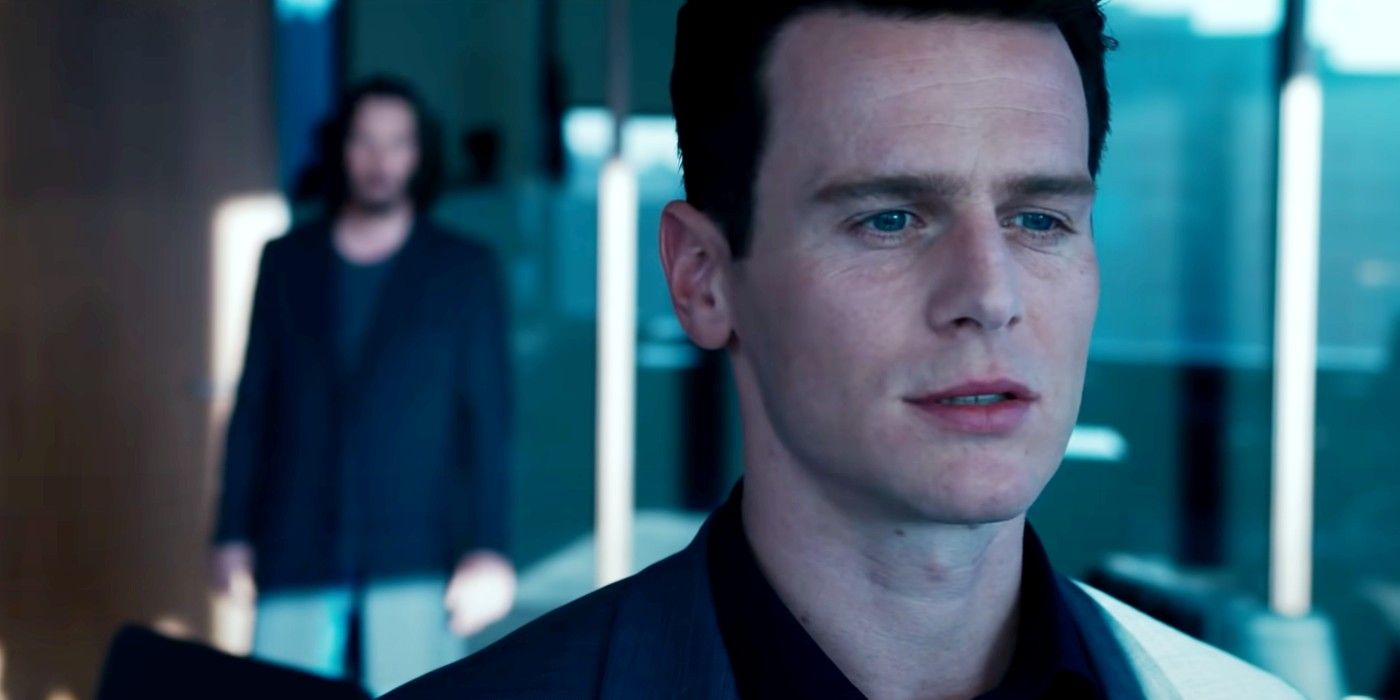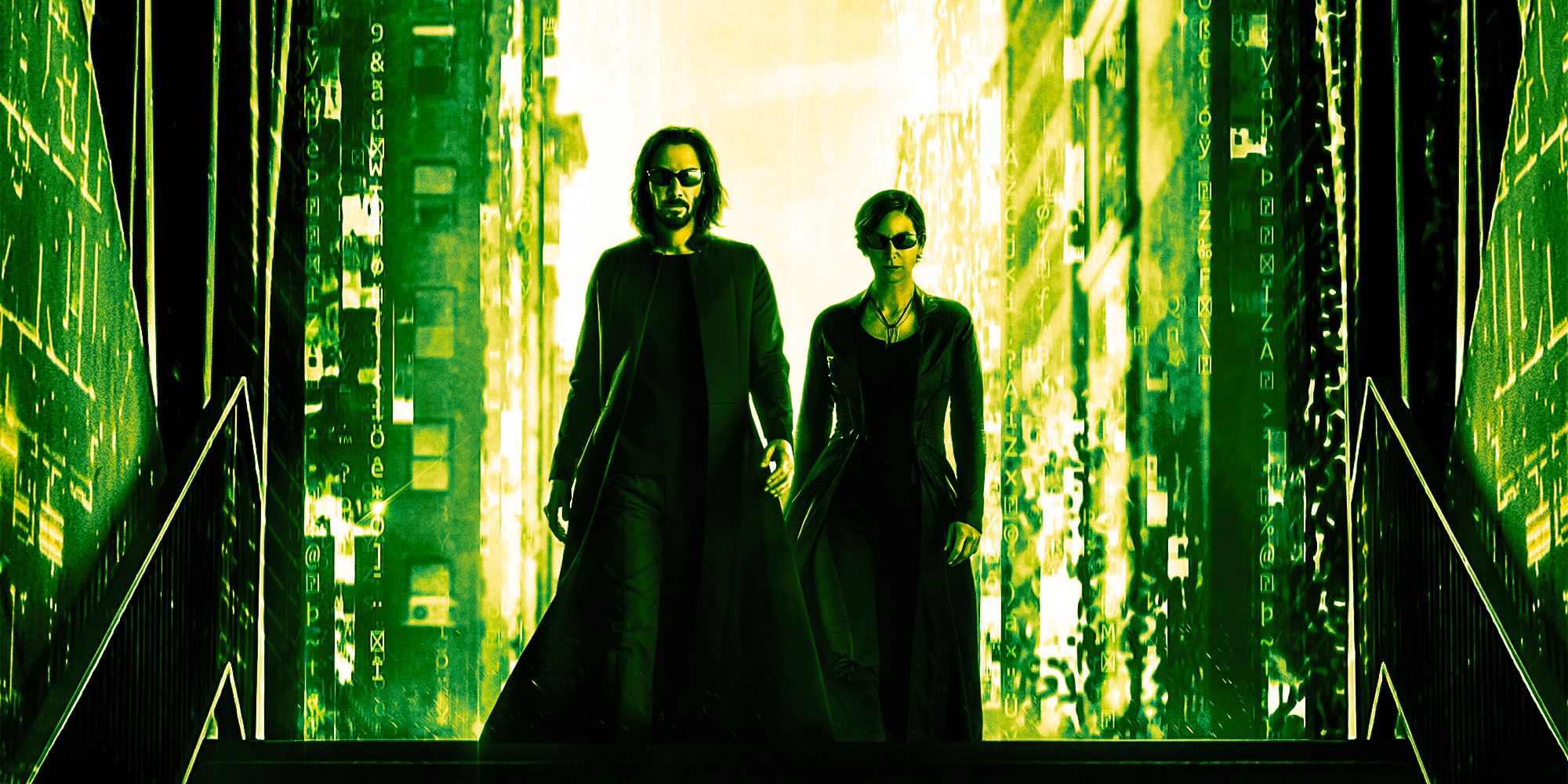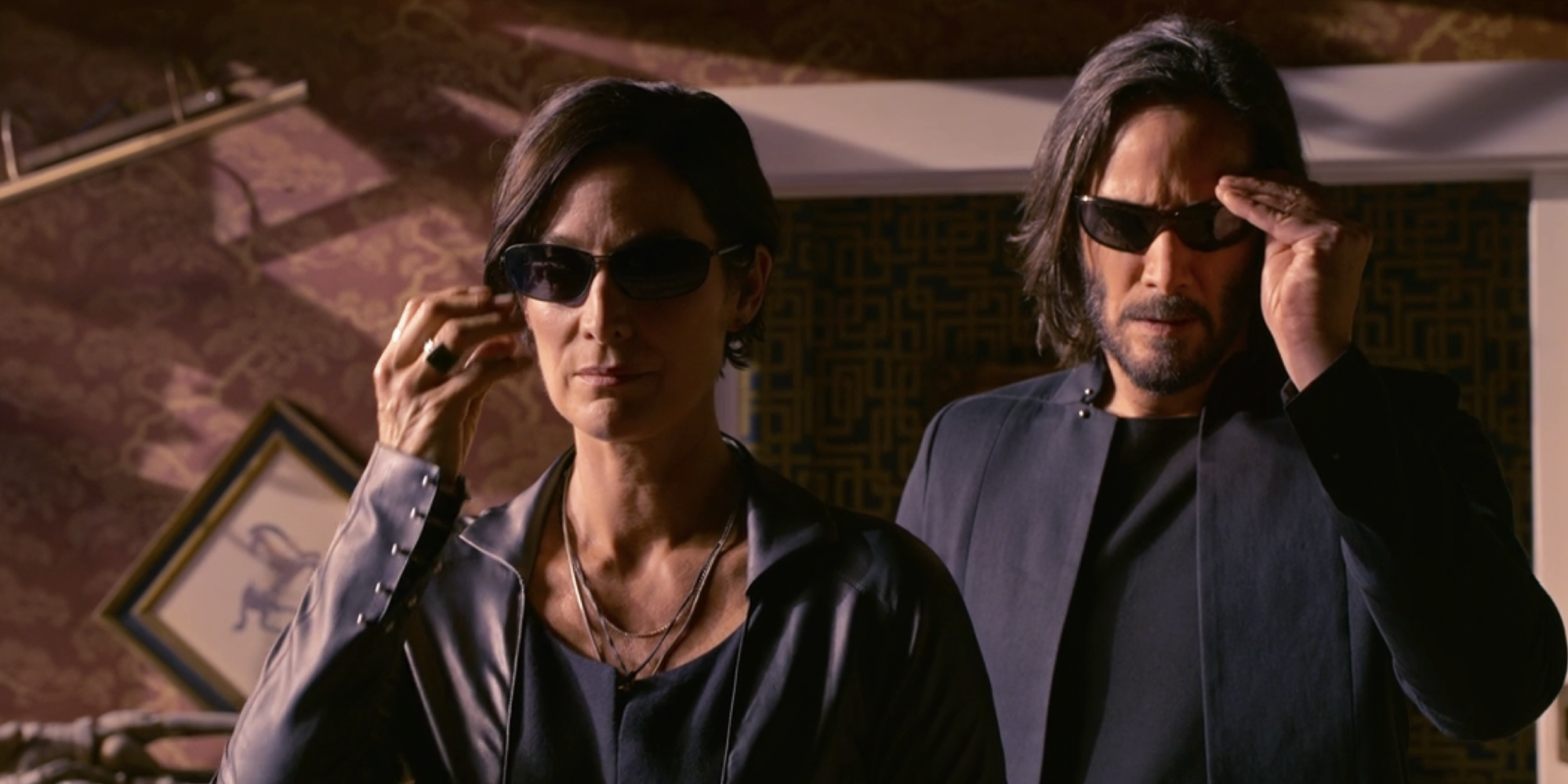The Matrix: Resurrections subverts a lot of the typical expectations for modern franchise revivals, and the plot seems to directly critique what Warner Bros. wanted to do with The Matrix reboot. At one point, there's even a direct name-drop of Warner Bros., putting their relationship with creators in an odd light, but a closer look at the movie's story and themes reveal something far more critical of the studio's Matrix franchise expectations.
The Matrix revolutionized movies in 1999, changing the way modern blockbusters are made and elevating audience expectations for sci-fi and action movies forever. The Matrix: Reloaded and The Matrix: Revolutions weren't as positively received at the time, but both sequels brought something new to the genre, and the audience defense of their unexpected creative decisions has grown in the years since their release.
While blockbuster successes of this kind often scream for more sequels, spin-offs, or reboots, The Matrix trilogy had a clear ending and the Wachowskis weren't interested in expanding the story with more movies. Warner Bros. could only sit on the franchise for so long, though, and an effort to bring the Matrix series back to the big screen was eventually successful in bringing back Lana Wachowski for The Matrix: Resurrections. The movie received generally positive reviews, but a significant portion of critics and audiences were also frustrated with how the movie poked fun at traditional franchise resurrections, while still engaging in some of the behavior it mocked.
Matrix 4's Warner Bros. Dig is Deeper Than One Line
The Matrix: Revolutions raised some eyebrows when Smith (Jonathan Groff) told Thomas Anderson AKA Neo (Keanu Reeves) "I'm sure you can understand why our beloved parent company, Warner Bros., has decided to make a sequel to the trilogy. They informed me they're gonna do it with or without us." The direct name drop of Warner Bros. is a bit more on-the-nose than The Matrix franchise has been in the past, especially considering how much it lines up with actual events.
Before the current iteration of The Matrix: Resurrections entered production, it was reported that Warner Bros. was moving forward with a new Matrix project without the involvement of the Wachowskis. During interviews with Producer James McTeigue for The Matrix: Resurrections, he confirmed there was another project in the works before Lana Wachowski signed on.
Given the similarity to actual events, the context makes much of the rest of The Matrix: Resurrection begins to look like a direct criticism of Warner Bros. plans to turn the Wachowskis' completed trilogy into a larger franchise. The movie's pitch meeting montage alone is full of digs about focus groups and brand identity and buzz words. Neo, the series' creator, just sits silently as a room full of executives tell him what made the original Matrix trilogy great and what he needed to do with Matrix 4 to recapture the magic. Considering the story of the original Matrix trilogy is credited solely to the Wachowskis, and in the movie, the story of The Matrix game trilogy is attributed solely to Thomas Anderson, pulled directly from fragments of memories in his head about his true identity, the notion of a sequel being developed in this way is beyond ironic, especially when the story takes an unexpected turn.
The Matrix 4 Mocks Audience and Studio Sequel Expectations (And Refuses To Deliver Them)
The Matrix Resurrections has been criticized for mocking the kind of nostalgia typically seen in movies like this, but it's important to consider the structure and delivery of the story. Approximately the first hour of the movie is spent heavily referencing the original Matrix movies, including frequent heavy-handed use of clips from the original trilogy. Characters in the movie also reference things from the movie, either because they know it from the games, or (if they've been freed from the Matrix) because they're familiar with Neo's history. This culminates with the pitch meeting for the Matrix sequel game, calling out many of the tricks the movie has been using, but things start to turn on their head when Neo escapes from the Matrix's artificial reality, which was designed to control him.
It turns out, the Machines literally re-animated the corpses of Neo and Trinity after the events of The Matrix: Resurrections because The Analyst (Neil Patrick Harris) says he found a way to use them to boost energy production for "the suits." In other words: the story Neo is forced to play out inside this version of The Matrix is intentionally designed to resemble the kind of story a corporate board would want to maximize profits because that's what the Machines are doing. The fact that Smith refers to their bosses as "Warner Bros." and The Analyst refers to the Machine overlords as "The Suits" is likely no accident either.
The movie has some big action scenes and thought-provoking concepts, but it doesn't actually try to "revolutionize" movies "again" or introduce a new bullet time or give Neo and Trinity the kind of bonkers action sequences typical of the original trilogy, at least not in the ways expected from typical franchise movies. In fact, Neo is intentionally less violent, and "bullet time" is literally weaponized and used against him by The Analyst. The Matrix spends the first half demonstrating it knows what audiences and the studio want from legacy sequels to popular properties, but then spends the second half of the movie denying those things and mocking the idea of them.
Matrix 4's Plot Works as a Metaphor for Creators Owning Their Own Art
The big question of many who are disappointed by this direction is "why?" Why would the creator of such a popular franchise make a sequel that thumbs its nose at the studio and audience like that? One of the movie's key scenes comes shortly after Neo is removed from The Matrix could shed light on Lana Wachowski's perspective. After Neo tells Bugs (Jessica Henwick), "they took my life and turned it into a video game," Bugs says "they took your story, something that meant so much to people like me, and turned it into something trivial. That's what The Matrix does. It weaponizes every idea. Every dream. Everything that's important to us."
When taken together, the meta jokes about resurrecting franchises, the direct jab at Warner Bros., the story decision to have Neo and Trinity resurrected for profit by the Machines, and a host of other parallels culminating in Neo and Trinity telling The Analyst they're going to "remake his world," and "remind people what a free mind can do." It's important to remember the Wachowskis' somewhat unique relationship with Warner Bros. After their first script to get turned into a movie, Assassins, was drastically altered by Richard Donner, the creative duo told Warner Bros. they would only let them have the script to The Matrix if they got to direct. The duo had never directed before, so first they made their directorial debut with Bound to prove they could direct The Matrix. Warner Bros. ended up granting them creative control of The Matrix so long as the studio was allowed to handle the casting.
The Wachowskis became some of the few directors in Hollywood afforded that level of creative control, including final cut authority on their movies (it's not clear if this is still the case with The Matrix: Resurrections), and a notorious "no press" clause, absolving them from obligations to perform interviews or talk about their movies if they didn't want to (which they usually didn't).
The Matrix was a special kind of blockbuster for Hollywood, inspired by an original script with the Wachowskis maintaining control over most creative decisions from page to screen. So, going back to the movie calling out Warner Bros. for making sequel plans without their involvement would be akin to telling Christopher Nolan they were making another Inception movie without his involvement or telling Quentin Tarantino they were making Kill Bill 3 without him. While it's totally understandable why Warner Bros. would want to get more out of the Matrix brand, and why many fans would want to see it, it's pretty clear why Lana Wachowski wasn't as interested in that, and why she took the story in this direction.
When it comes to big franchises like Marvel, DC, or Star Wars, the relationship between the filmmakers and the studio is usually a little more clear cut since the studio owns the rights to the source material the movies are based on, but with The Matrix being an original property where the Wachowskis saw an uncommon amount of creative control, those lines are a little less clear, especially if Warner Bros. was planning on continuing the franchise without the Wachowskis at one point. Wherever the true ownership of the property rests, The Matrix: Resurrections makes it clear how Lana Wachowski feels about it.




